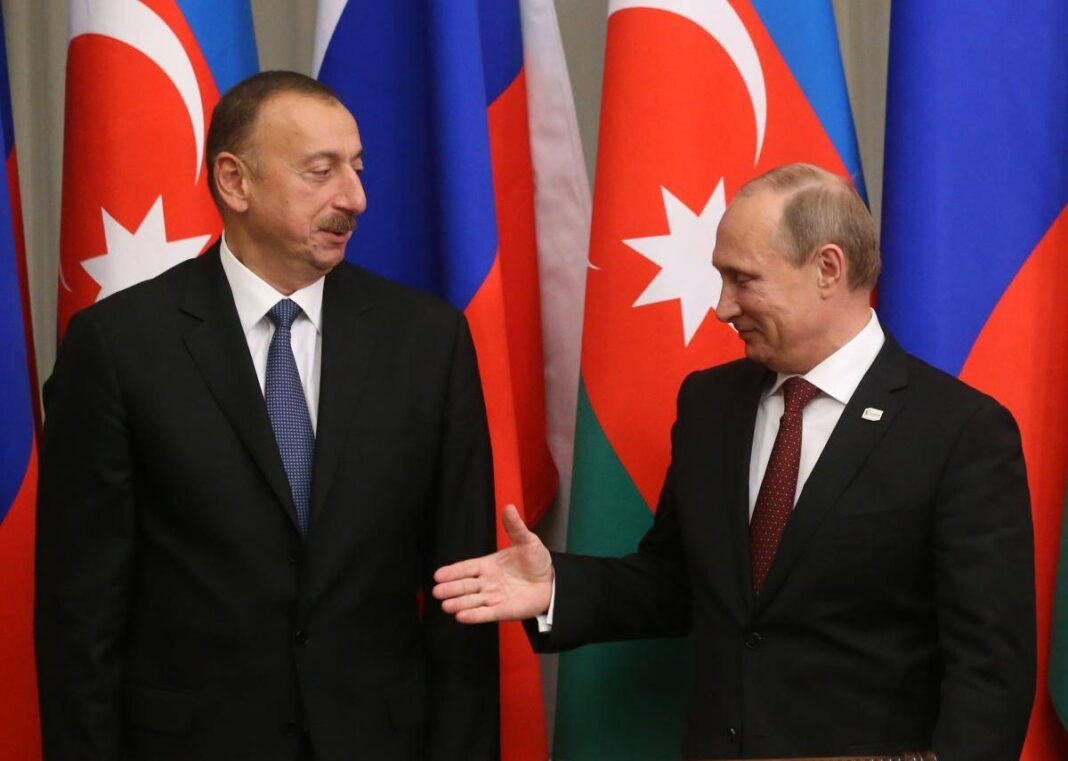Editorial
What began as a tragic episode involving two dead Azerbaijani men in Russian custody has escalated into the sharpest rift in Azerbaijan–Russia relations since the collapse of the Soviet Union. Over the past two weeks, Baku and Moscow have lurched toward open confrontation—only to abruptly signal a cooling of tensions in recent days. But this moment marks far more than a passing dispute: it reflects a larger unraveling of Moscow’s regional influence.
The Catalyst: Deaths in Yekaterinburg
The immediate cause of the diplomatic fallout was the June 27 raid by Russian special forces on the homes of Azerbaijani migrants in Yekaterinburg. Ziyaddin and Huseyn Safarov, both dual nationals, died during detention. Russian officials claimed heart failure; Azerbaijani pathologists found signs of torture (Al Jazeera).
The fallout was swift:
Azerbaijani foreign ministry summoned the Russian ambassador.
Sputnik Azerbaijan’s offices were raided, and multiple Russian journalists detained (Carnegie Endowment).
Cultural exchanges and high-level visits were canceled by Baku.
Baku refused to release Russian nationals without formal documentation and guarantees.
Strategic Context: Why It Matters
This rupture cannot be viewed in isolation. It is the culmination of three converging pressures:
Post-Karabakh Confidence: Azerbaijan’s 2023 reassertion of control over Nagorno-Karabakh, without Russian interference, emboldened Baku. The lack of Russian support for Armenia—Moscow’s treaty ally—signaled Russia’s weakening grip in the region.
The Flight 8243 Incident: In December 2024, Azerbaijan Airlines Flight 8243 was allegedly downed by a Russian-made missile near Derbent. Although Russia denied responsibility, the incident is widely believed in Baku to have been a form of coercive signaling (The Times).
The Ukraine Factor: Azerbaijan’s subtle but clear support for Ukraine—avoiding votes in favor of Russia at the UN, increasing energy exports to Europe, and high-level visits to Kyiv—have irritated Moscow. In turn, Russia has allowed increased coverage of anti-Azerbaijan narratives on Russian state media.
De-Escalation Moves (Past 7 Days)
Despite the unprecedented rhetoric, a walk-back has emerged:
July 2: Kremlin spokesman Dmitry Peskov called for “strategic calm,” noting that both nations have “too much to lose” (Reuters).
July 12: Several Sputnik-affiliated individuals were quietly released from Azerbaijani custody without charges.
Russia muted its tone, avoiding further escalation despite Azerbaijan’s refusal to send a delegation to the Russia-led CSTO summit.
Insiders suggest Turkey played a quiet mediating role behind the scenes, pressuring both sides to temper their actions to avoid jeopardizing broader regional stability.
Forecast: Cold Normalization or Strategic Divorce?
A few distinct scenarios are in play:
1. Controlled Normalization (Most Likely, Short-Term)
Backchannel diplomacy resumes.
Russia avoids retaliating economically due to its isolation over Ukraine.
Azerbaijan allows some Russian-linked media and cultural activities to resume—without reversing its Western pivot.
2. Strategic Drift (Medium-Term)
Azerbaijan deepens ties with the West and regional powers (Turkey, Israel, Pakistan, Ukraine).
Russia loses leverage in energy transit, as Azerbaijan boosts gas flow to Europe via TANAP and interconnects.
Azerbaijani diaspora in Russia remains under threat, potentially sparking future flare-ups.
3. Open Confrontation (Low Probability, High Risk)
Cyberattacks, covert sabotage, or provocations in disputed border areas could spiral into military posturing.
Russia may empower fringe groups within Azerbaijan or stoke unrest in ethnically mixed regions.
Broader Implications for the South Caucasus
This episode marks not just a diplomatic crisis, but a transformation:
Armenia is drifting westward—recent talks with the EU and French military cooperation show a changing alignment.
Georgia remains on edge, with anti-Russian protests and fears of creeping authoritarianism.
Iran watches closely, wary of Turkish-Azerbaijani coordination near its borders.
As Al Jazeera put it, the South Caucasus “is slipping from Russia’s grasp” amid war fatigue, economic sanctions, and crumbling soft power.
Conclusion: A Eurasian Realignment in Motion
The recent cooling in rhetoric between Baku and Moscow masks a deeper, irreversible geopolitical trend: Azerbaijan is realigning away from the Russian orbit. While a diplomatic reset may soothe tensions for now, it will not erase the structural rift between an assertive, globally integrated Azerbaijan and a beleaguered, war-weary Russia.
In the end, this is not about one diplomatic spat—but about the collapse of post-Soviet assumptions in the South Caucasus.


